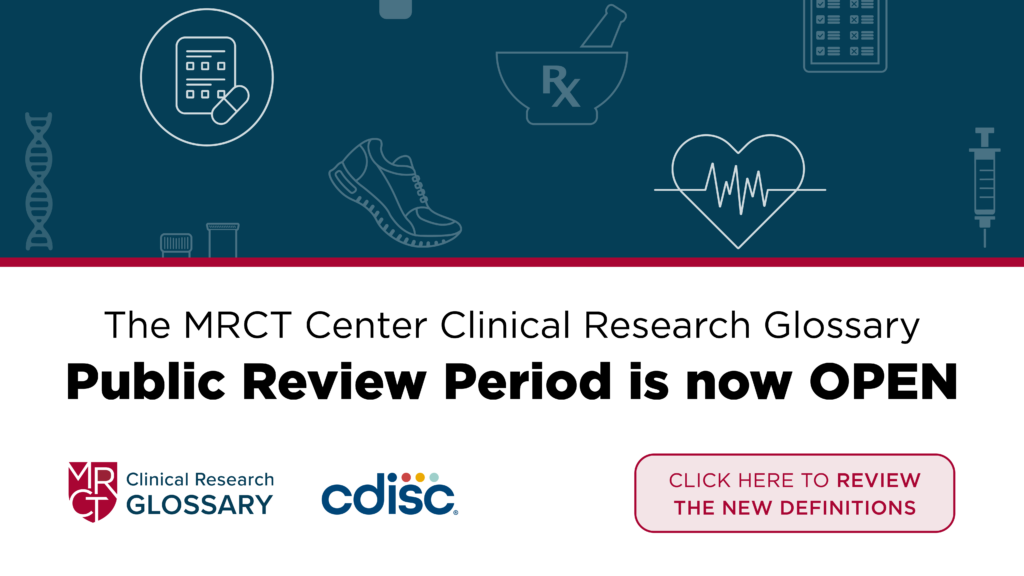Helping you understand clinical research
The Clinical Research Glossary offers easy to understand clinical research definitions.
All definitions are developed by the MRCT Center and a committed team of patient advocates and other professionals in medicine and research. Before definitions are released, they are reviewed by members of the public.
The Clinical Research Glossary started as a pilot project in 2020 and is now a CDISC global standard for clear communication. This means that more and more groups are learning about and using this resource.
Welcome! We hope this resource is helpful to you.


